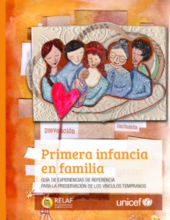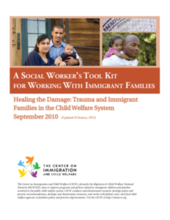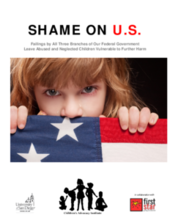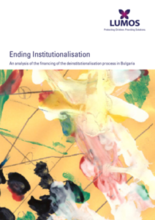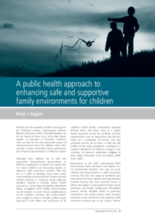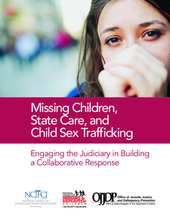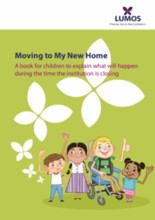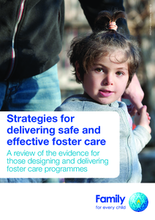Displaying 1801 - 1810 of 2221
Esta Guía reúne una serie de programas, prácticas y políticas públicas que resultaron en la garantía del derecho a la convivencia familiar y comunitaria de niñas y niños en su primera infancia. En particular, se caracterizan por ser innovadoras o por haber obtenido buenos resultados en la protección y la restitución de este derecho. Las experiencias recopiladas abarcan programas, proyectos e iniciativas públicas, privadas o mixtas de fortalecimiento familiar, provisión de cuidados alternativos, y de reintegración familiar.
This toolkit, originally published in September 2010 and updated in February 2015, serves as a resource for social workers in the US who are working with immigrant families within the child welfare system.
This study examines the outcomes for children in the U.S. foster care system who have been placed into care due to parental death and parental incarceration.
This study examines the influence of a subset of adverse childhood experiences (ACEs), placement instability, and childhood disability in uniquely predicting mental health outcomes among racially diverse foster care alumni from a private foster care agency in the US.
This study, produced by the Children’s Advocacy Institute at the San Diego School of Law, examines the activities of the federal government of the United States in regards to enacting and enforcing child welfare laws and ensuring that individual states are complying with minimum federal standards for child protection.
According to this report from Lumos, in 2010 there were more than 6,700 children living in institutions in Bulgaria.
This report proposes a public health approach to promoting safe and supportive family environments for children and preventing child maltreatment in Australia.
This technical assistance brief answers the question “What steps can a judge take when a child runs away or goes missing from care?” The brief is intended to educate juvenile and family court judges in the United States on the steps to be taken to assist in in locating and recovering children who go missing from care.
The aim of this book is to explain to children what to expect during the time the institution in which they reside is closing.
This report from Family for Every Child begins to fill the gap in understanding on how to deliver effective, safe foster care programmes through an exploration of the literature and interviews with experts.

